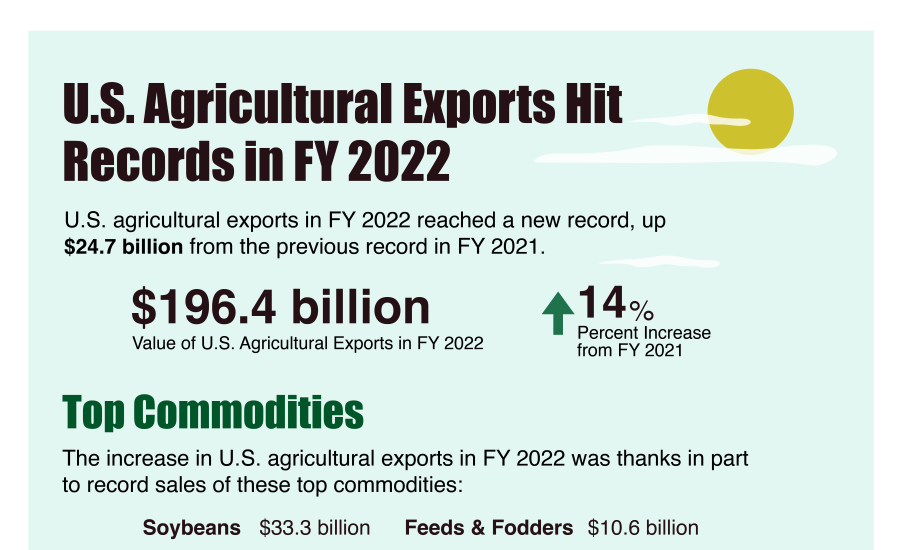Browse Data and Analysis
Filter
Search Data and Analysis
- 268 results found
- (-) Taiwan
- Clear all
Taiwan rejected and or destroyed 28 shipments of U.S. agricultural products in 2022 according to the Taiwan Food and Drug Administration (TFDA). Chemical residues were cited as the reason for 18 of the 28 recorded rejections. The second largest...
Taiwan released its list of imported food and agricultural products undergoing enhanced border inspection for 2023. No U.S. products were included on the list. In 2022, U.S. apples, avocadoes, and paper plates had been subject to enhanced inspection.
U.S. beef exports to East Asia in 2022 are again on record pace after a record year in 2021. Despite economic uncertainties due to the COVID-19 pandemic, continued global supply chain challenges, and a competitive global beef market, U.S. beef exports to East Asia, both in value and volume, were outstanding in the first half of 2022.
Since the previous report, Taiwan has granted new approvals for imports of genetically engineered (GE) products for processing, food, and feed use. Taiwan has never permitted domestic production of GE crops or animals. In 2021, Taiwan imported close to $1.2 billion of U.S. GE crops including soybeans, corn, and cotton, accounting for 30 percent of total U.S. agricultural exports to the island.
Since 2019, Taiwan took a cautious attitude regarding the COVID-19 pandemic but is now finally loosening its border controls and mask mandates. Unlike during the pandemic when people were more inclined to cook at home, now consumers are again looking for quick and convenient food and beverage options.
In 2021, Taiwan was the sixth largest export market for U.S. food and agricultural products, valued over $3.78 billion. Imported food and agricultural products must comply with a range of laws designed to protect human health and prevent the introduction of animal and plant pests or diseases.
This report lists major export certificates required by the Taiwan government to export food and agricultural products to Taiwan. For more information on import requirements, see the Taiwan Food and Agricultural Import Regulations and Standards Report.
FY2022 agricultural exports reach record levels.
Taiwan’s domestic apple production rose to 1,458 MT in MY 2021/2022, though production area continues to shrink due to economic, trade, and environmental factors. Taiwan’s apple demand remains strong and consumption is almost entirely import dependent. Total imports in MY 2021/2022 were 151,260 MT and are forecast to increase to 154,000 in MY 2022/2023. The United States holds the largest market share by volume, though New Zealand is rapidly gaining market share and enjoys a tariff advantage.
Taiwan MY 2023 fluid milk production is forecast to increase to 465,000 MT. During the supply chain disruptions resulting from the COVID-19 pandemic, milk imports declined by 17 percent in MY 2021, pushing local producers to exceed production expectations to meet high demand.
Taiwan is the United States' sixth largest export market for food and agricultural products. With the highest GDP per capita in Eastern Asia, the island imported over US $30 million of coffee from the US in 2021.
Taiwan’s GDP per capita is expected to surpass Japan and Korea, making its consumers with the strongest spending power in Eastern Asia. At the same time, demand for international sweets and snacks are growing as consumers compensate for not being able to travel abroad. ATO-Taipei conducted retail research on popular products and origins to show market opportunities and preferences.

